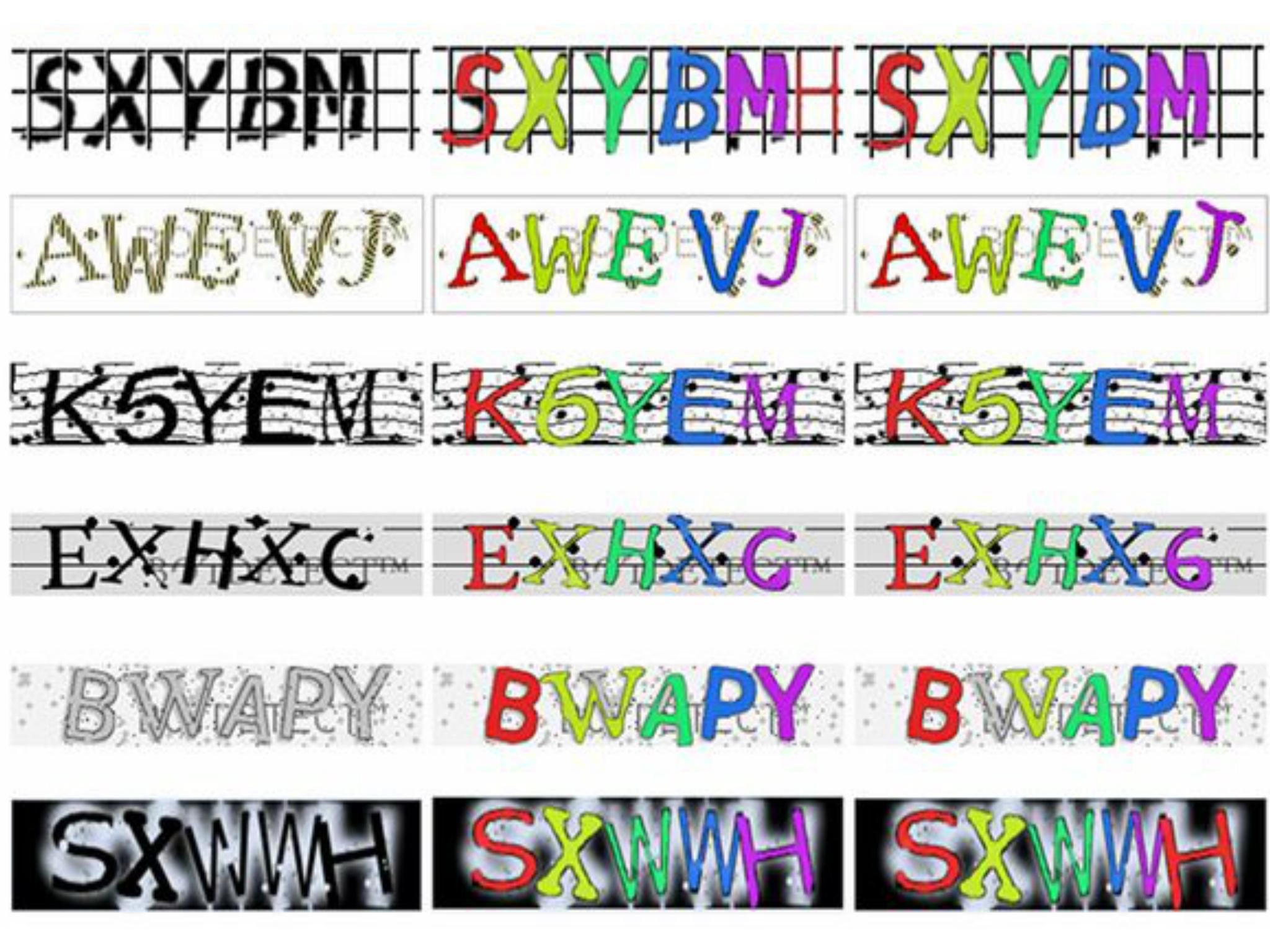Bot ‘breaks’ Captcha, making the most annoying thing on the internet pointless
An artificial intelligence system has managed to solve 'a wide variety' of challenges with 'very little training data'

Researchers have created an artificial intelligence system that can solve Captcha challenges, rendering them “broken” and “ineffective”.
The security check is designed to block potentially harmful bots from websites, and does so by presenting puzzles that are supposed to be easy for people to solve, but very difficult for computers.
They’ve been around since the late 1990s and have long been considered extremely annoying, but experts believe it could soon be time for them to be replaced.
The researchers, from a company called Vicarious, managed to build an AI system – called the Recursive Cortical Network (RCN) – that approaches Captcha challenges in much the same way that a human would.
“With one model, we achieve an accuracy rate of 66.6% on reCAPTCHAs, 64.4% on BotDetect, 57.4% on Yahoo, and 57.1% on PayPal, all significantly above the 1% rate at which CAPTCHAs are considered ineffective,” they wrote in a blog post.
“When we optimize a single model for a specific style, we can achieve up to 90% accuracy.”
The researchers say it managed to break “a wide variety of text-based Captchas” with “very little training data”.
Instead of trying to familiarise itself with every possible type of Captcha it might come across, the researchers wanted the system to “learn and generalize from a few examples”, as humans can.
“Although specific Captchas have been broken before using style-specific segmentation heuristics, those attacks could be foiled easily by minor alterations to Captchas,” the researchers wrote in a paper that has been published in the journal Science.
“RCN breaks the segmentation defense in a fundamental way and with very little training data, which suggests that websites should move to more robust mechanisms for blocking bots.”
Join our commenting forum
Join thought-provoking conversations, follow other Independent readers and see their replies
Comments
Bookmark popover
Removed from bookmarks